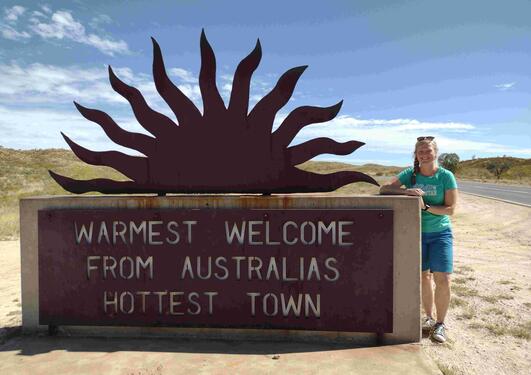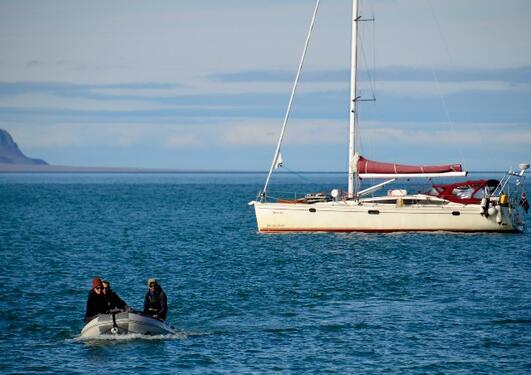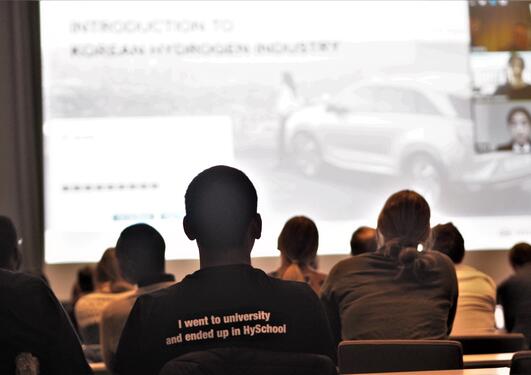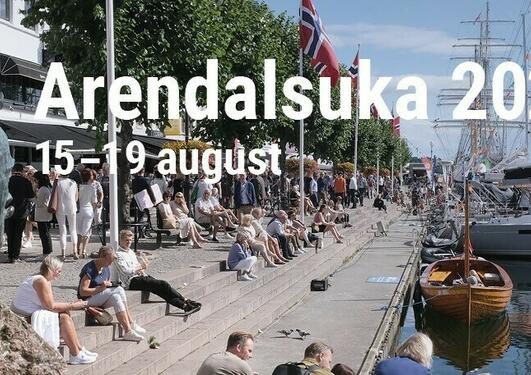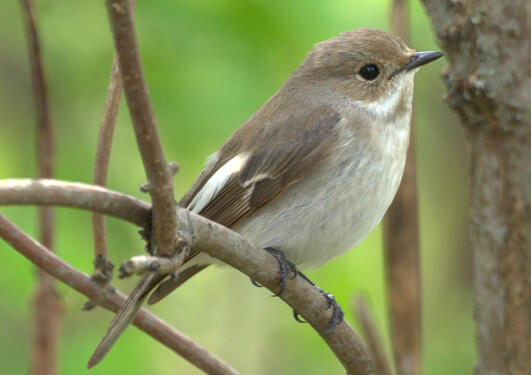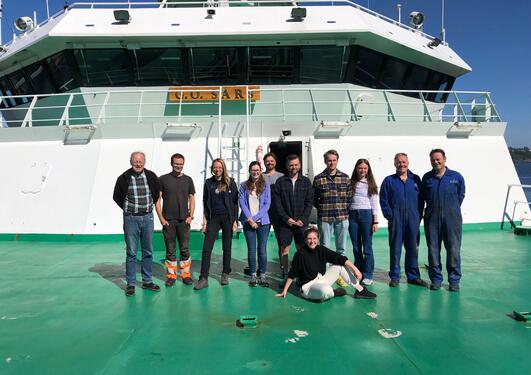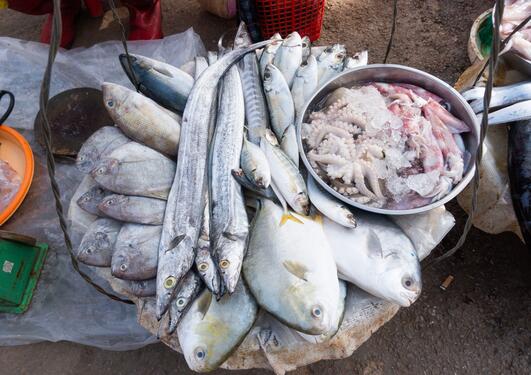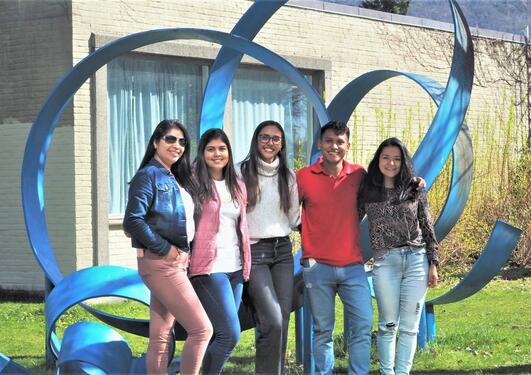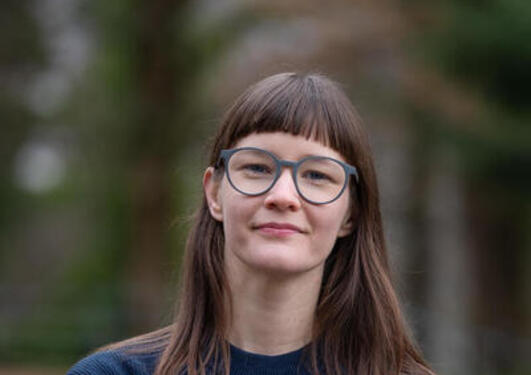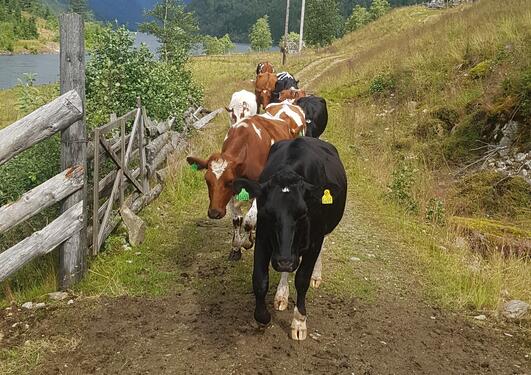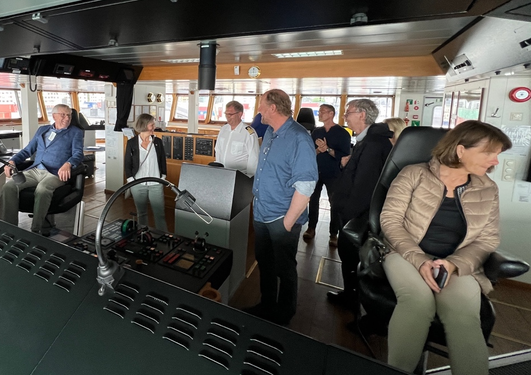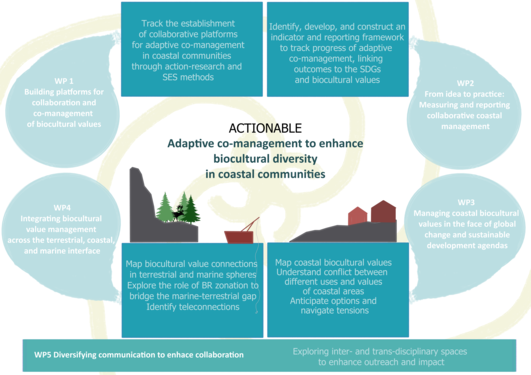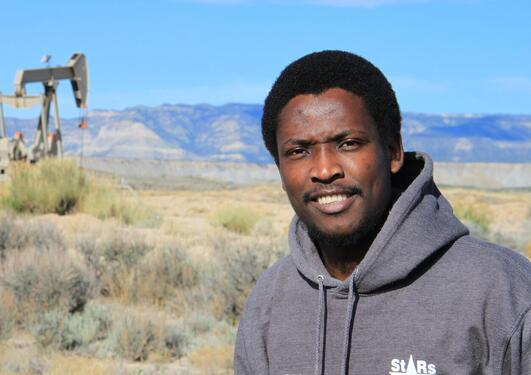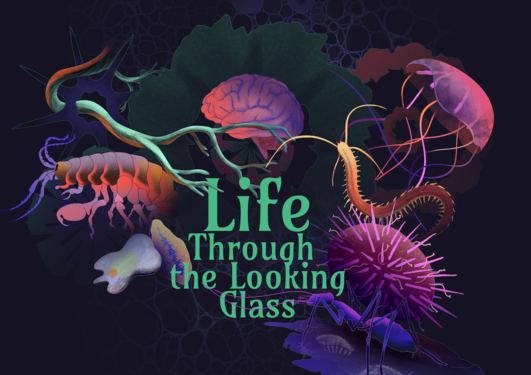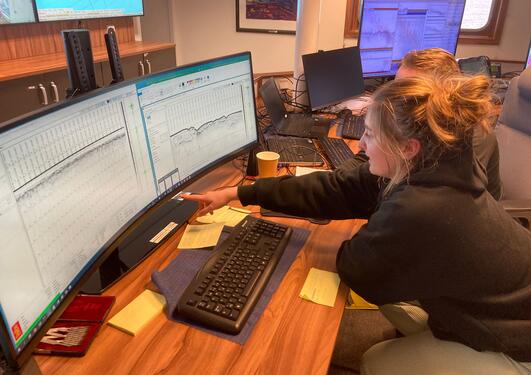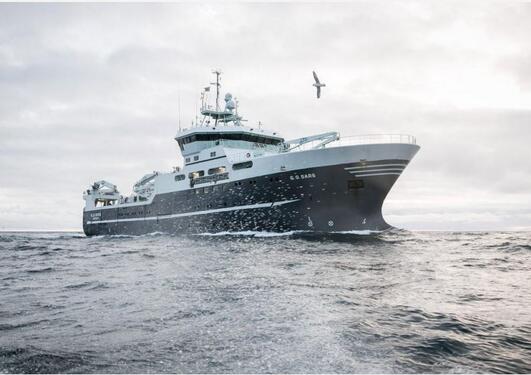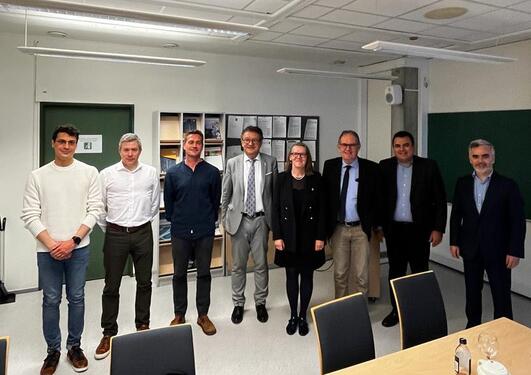News archive for Faculty of Science and Technology
While the majority of the Centre for Deep Sea researchers have gone out to the Norwegian Sea this summer to study seafloor processes and hydrothermal vents, Desiree Roerdink flew to the other side of the world to do exactly the same thing – in rocks that are more than three billion years old.
You can now submit your application for HySchool - Norwegian Research School on Hydrogen and Hydrogen-based Fuels. HySchool has a rolling enrollment.
Arendalsuka 2022 has started, and our centre leaders are part of the program on multiple occasions. The yearly political festival covers a wide range of topics and activities, but Inger Måren and Vigdis Vandvik will appear on stage to discuss the nature crisis, how to bring a sustainability mindset to science education, and ways in which nature can be given a voice in our economic system.
The paper published earlier this year showing that infidelity can promote cooperation among male pied flycatchers has sparked some discussion.
Marine Geological Cruise Report from The North Sea: Utsira Nord and Sørlige Nordsjø III (27.07.2022)
In June 2022, geologists from the Department of Earth sciences, associated with the Bergen Offshore Wind Centre, sailed on a scientific cruise to Utsira Nord and Sørlige North Sea II to collect data that will be used to map the sea bottom conditions in the areas opened for offshore energy production. You can read the cruise report here.
“Sustainable use of wild species is key to achieve the Sustainable Development Goals,” says Professor Jeppe Kolding at the University of Bergen. He is one of 87 international experts co-writing a new report out Friday 8 July 2022.
Through the NORHED II-project CO2-EOR for CCUS in Colombia and Ecuador: Norwegian energy initiative, the Department of Physics and Technology will be receiving guest visitors from Ecuador and Colombia onward.
PostDoc Alicia Donellan Barraclough recently received funding for her project ACTIONABLE from The Norwegian Research Council, under the theme "Areas under pressure". The project is scheduled to start summer 2023. Read more about the project in Alicia's own words below.
One might think that the similarities between farmers in Nordhordland UNESCO Biosphere Reserve and small-scale farmers in China and USA start and end with their occupation, but a new study finds striking similarities in their adaptive responses to the COVID pandemic - some of which should be considered implemented permenantly for more resilient food-production.
We are very pleased and proud to congratulate Dr. Alicia Donnellan Barraclough for receiving funding from the Norwegian Research Council to execute her interdisciplinary project: “ACTIONABLE - Adaptive Co-management to enhance biocultural diversity and sustainable development in coastal communities”.
On Friday 17. June Edoseghe Osagiede defended his thesis "The structural evolution of rift fault networks: From pre-existing structural controls to topological characterisation of the northern North Sea Rift System"
The online exhibition presents works-in-process of young scientists from the EvoCELL network. The researchers are studying animal evolution from a cellular perspective, by applying cutting-edge technologies to uncover a previously invisible world.
The R/V G.O. Sars has reached day 5 of its 10 day cruise to the offshore wind sites Utsira Nord and Sørlige Nordsjø II in the North Sea.
Friday 10th of June R/V G.O. Sars set its course towards the southern North Sea to start UiB's first scientific cruise to investigate ground conditions for foundations and anchoring of offshore wind farms.
The first week in June UIB GEO has been hosting the Summer School for the Marie Curie Innovative Training Project "S2S Future: Signal Propagation from Source to Sink for the Future of Earth Resources and Energy". 13 PhD candidates have come from universities in France, Germany, UK, Netherlands, Norway, Spain and Switzerland to learn and work together in western Norway.
Pages
- October 2024 (8)
- September 2024 (13)
- August 2024 (9)
- July 2024 (11)
- June 2024 (7)
- May 2024 (14)
- April 2024 (16)
- March 2024 (7)
- February 2024 (15)
- January 2024 (7)
- December 2023 (7)
- November 2023 (19)
- October 2023 (11)
- September 2023 (13)
- August 2023 (8)
- July 2023 (3)
- June 2023 (11)
- May 2023 (7)
- April 2023 (13)
- March 2023 (10)
- February 2023 (11)
- January 2023 (19)
- December 2022 (5)
- November 2022 (25)
- October 2022 (8)
- September 2022 (8)
- August 2022 (8)
- July 2022 (5)
- June 2022 (9)
- May 2022 (7)
- April 2022 (6)
- March 2022 (7)
- February 2022 (10)
- January 2022 (7)
- December 2021 (10)
- November 2021 (3)
- October 2021 (10)
- September 2021 (6)
- August 2021 (6)
- July 2021 (3)
- June 2021 (21)
- May 2021 (13)
- April 2021 (3)
- March 2021 (6)
- February 2021 (4)
- January 2021 (4)
- December 2020 (6)
- November 2020 (2)
- October 2020 (4)
- September 2020 (4)
- August 2020 (4)
- July 2020 (2)
- June 2020 (3)
- May 2020 (4)
- April 2020 (5)
- March 2020 (1)
- February 2020 (2)
- January 2020 (3)
- December 2019 (7)
- November 2019 (4)
- October 2019 (9)
- September 2019 (4)
- August 2019 (3)
- July 2019 (3)
- June 2019 (9)
- May 2019 (8)
- April 2019 (7)
- March 2019 (8)
- February 2019 (10)
- January 2019 (12)
- December 2018 (14)
- November 2018 (9)
- October 2018 (11)
- September 2018 (5)
- August 2018 (8)
- July 2018 (2)
- June 2018 (6)
- May 2018 (9)
- April 2018 (8)
- March 2018 (8)
- February 2018 (8)
- January 2018 (6)
- December 2017 (3)
- November 2017 (8)
- October 2017 (7)
- September 2017 (4)
- August 2017 (4)
- July 2017 (3)
- June 2017 (13)
- May 2017 (6)
- April 2017 (5)
- March 2017 (9)
- February 2017 (8)
- January 2017 (5)
- December 2016 (6)
- November 2016 (5)
- October 2016 (7)
- September 2016 (8)
- August 2016 (3)
- June 2016 (6)
- May 2016 (8)
- April 2016 (4)
- March 2016 (5)
- February 2016 (5)
- January 2016 (6)
- December 2015 (6)
- November 2015 (4)
- October 2015 (2)
- September 2015 (2)
- August 2015 (2)
- July 2015 (3)
- June 2015 (3)
- May 2015 (3)
- April 2015 (2)
- March 2015 (3)
- February 2015 (3)
- January 2015 (5)
- December 2014 (3)
- November 2014 (2)
- October 2014 (7)
- September 2014 (6)
- August 2014 (1)
- July 2014 (1)
- June 2014 (1)
- May 2014 (7)
- March 2014 (6)
- February 2014 (4)
- January 2014 (3)
- December 2013 (6)
- November 2013 (8)
- October 2013 (15)
- September 2013 (9)
- August 2013 (8)
- July 2013 (5)
- June 2013 (7)
- May 2013 (9)
- April 2013 (9)
- March 2013 (4)
- February 2013 (5)
- January 2013 (6)
- December 2012 (4)
- November 2012 (5)
- October 2012 (5)
- September 2012 (7)
- August 2012 (6)
- July 2012 (2)
- June 2012 (8)
- May 2012 (4)
- April 2012 (2)
- March 2012 (5)
- February 2012 (6)
- January 2012 (6)
- December 2011 (4)
- November 2011 (9)
- October 2011 (7)
- September 2011 (11)
- August 2011 (3)
- July 2011 (5)
- June 2011 (8)
- May 2011 (8)
- April 2011 (6)
- March 2011 (9)
- February 2011 (9)
- January 2011 (7)
- December 2010 (3)
- November 2010 (5)
- October 2010 (5)
- September 2010 (7)
- August 2010 (2)
- June 2010 (7)
- May 2010 (5)
- April 2010 (4)
- March 2010 (6)
- February 2010 (8)
- January 2010 (10)
- December 2009 (1)
- October 2009 (6)
- September 2009 (7)
- August 2009 (6)
- July 2009 (2)
- June 2009 (7)
- May 2009 (7)
- April 2009 (2)
- March 2009 (4)
- February 2009 (3)
- January 2009 (9)
